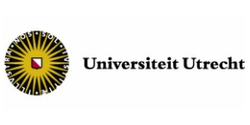Postdoctoral Researcher on Inclusive Energy Transitions in Neighbourhoods
Updated: 05 Nov 2024
Vulnerable neighbourhoods provide strategic spatial and institutional challenges for urban energy transitions, especially in developing collective agency and achieving just transitions. In our research project “Collective agency and co-evolution toward inclusive energy transitions” (CO2PED) we build concrete tools to strengthen the urban transformative capacity of stakeholders toward developing positive-energy districts.
Your job
CO2PED engages with neighbourhoods in Belgium, Estonia, the Netherlands, and Portugal. We aim to empower residents as active agents in sustainable neighbourhood redevelopment while at the same time strengthening the capacity of municipalities and other public and private stakeholders to imagine and facilitate more inclusive energy transition strategies.
We are inviting candidates to apply for a position as postdoctoral researcher in CO2PED. You will work directly with Dr Martijn van den Hurk and become a member of the international consortium, including the universities of Ghent, Tartu and Aveiro. You will conduct empirical research on two selected neighbourhoods in Utrecht, with a conceptual focus on the visions and visioning processes related to the futures of these two neighbourhoods. The critical research tasks include:
- analysing how the futures of the neighbourhoods are visioned;
- developing and testing alternative approaches of visioning the futures of the neighbourhoods;
- articulating methods to institutionalise novel visioning approaches locally and address their replicability internationally;
- (co-)organising consortium meetings and leading in preparing and coordinating stakeholder events and making and presenting research outputs.
Requirements:
You are an enthusiastic and motivated researcher who has:
- a PhD degree in a relevant scientific discipline such as urban or spatial planning, human geography, sustainable development, or transition studies;
- excellent academic skills and demonstrated experience concerning (a) qualitative data collection, analysis and interpretation, (b) stakeholder engagement, and (c) research ethics;
- in-depth knowledge of and/or strong affinity with neighbourhoods, energy transitions, and futures studies;
- strong (academic) writing skills;
- an excellent command of the English language - proficiency in Dutch will be considered an advantage;
- an ability to work both independently and in a team;
- excellent communication and interpersonal skills.
Salary Benefits:
We offer:
- a position for 24 months.
- a working week of 28-32 hours and a gross monthly salary between €3,345 and €4,492 in the case of full-time employment (salary scale 10.0-10.7 under the Collective Labour Agreement for Dutch Universities (CAO NU));
- 8% holiday pay and 8.3% year-end bonus;
- a pension scheme, partially paid parental leave and flexible terms of employment based on the CAO NU.
In addition to the terms of employment laid down in the CAO NU, Utrecht University has a number of schemes and facilities of its own for employees. This includes schemes facilitating professional development, leave schemes and schemes for sports and cultural activities, as well as discounts on software and other IT products. We also offer access to additional employee benefits through our Terms of Employment Options Model. In this way, we encourage our employees to continue to invest in their growth. For more information, please visit Working at Utrecht University.
28 - 32 hours per week
Princetonlaan 8a

